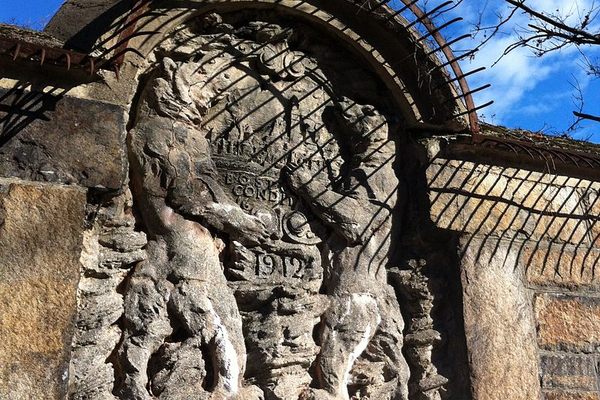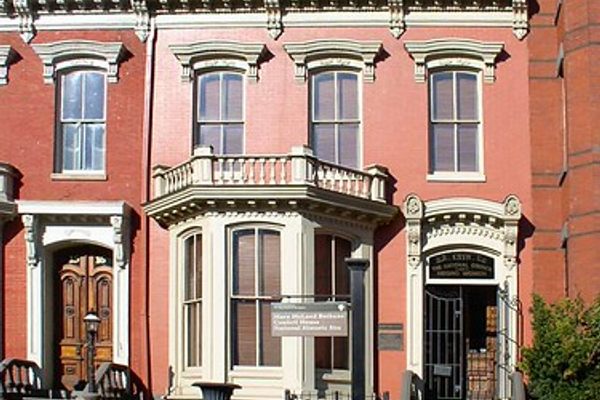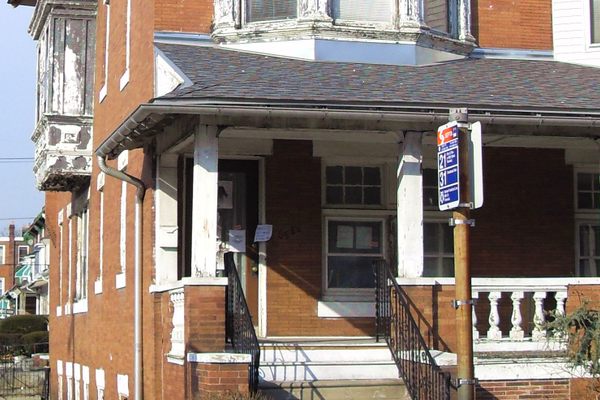AO Edited
Malcolm X and Ella Little-Collins House
Malcolm X's house during his most formative years faces an uncertain future.
Malcolm Little was born in Omaha, Nebraska in 1925 to a family constantly in fear of the Ku Klux Klan, racial violence, and white supremacy. During his childhood, Little and his family would shuffle from city to city, consistently being victims of heinous acts of racial hatred. In 1938, while the family was living in Michigan, Little’s mother was committed to a mental asylum, leaving the young Malcolm and his six siblings to the foster care system. He stayed in Michigan but eventually left to move in with his half-sister, Ella Little-Collins, in Roxbury, the center of black culture in Boston.
Little-Collins acted as a sort of surrogate mother to Little, and later in life, Little would cite her as one of the most influential figures to his worldview and character. Likewise, Little’s time in Roxbury would be immensely important in forming his religious beliefs. In 1948, Little was incarcerated at Norfolk County Prison, where he would first be exposed to the teachings of the Nation of Islam by fellow inmate John Bembry. Here, he would write a letter to Elijah Muhammad asking for consultation, as well as a letter to President Harry S Truman where he admitted to being a communist. Little was a reformed man by the time he was released in 1952, and he soon returned to Boston to establish Temple 11 to help spread the teaching of both Islam and black empowerment. By this time, Little had adopted a new name for himself, a name that would be recognized as one of the most influential, controversial, and iconic in all of the civil rights movement: Malcolm X.
Of course, Malcolm X’s life would take a number of striking twists and turns, unfortunately ending with his assassination in 1965, but Little-Collins’ house would not have such a fascinating history. After Malcolm X left Massachusetts in 1953, the Little-Collins house would continue to serve as a simple private residence for the Little-Collins family, practically unremarkable save for its distinctive art deco garage. Ella Little-Collins continued supporting her half-brother by working to promote racial equality and black empowerment until her death at home in 1984.
The house stayed in the family until the summer of 2020, when the murder of George Floyd would reignite discussions of race relations in the United States, prompting the home to become an unofficial holy site of sorts for Boston’s black community. In 2021, the house was listed on the National Register of Historic Places, and archeologists - assisted by Rodnell Collins, Malcolm X’s nephew and current owner of the property - began to survey the site for artifacts. Historic Boston, a local trust for historical preservation, has recently begun preparations to rehab and restore the home, but progress is coming along at a snail’s pace.
Know Before You Go
The house is a private residence, so please be respectful of residents. The adjacent Malcolm X Park is a wonderful place to relax and have fun.
Plan Your Trip
The Atlas Obscura Podcast is Back!























Follow us on Twitter to get the latest on the world's hidden wonders.
Like us on Facebook to get the latest on the world's hidden wonders.
Follow us on Twitter Like us on Facebook